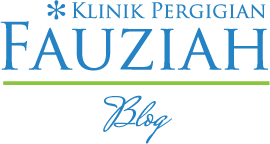Mouth Breathing – Dr Mh Tan
What is mouth breathing?
Mouth breathing is inhaling through your mouth instead of your nose.
While it is true that all healthy people breath through the nose and mouth, breathing through the mouth is only necessary when there is a blockage in the nose or when you need a larger gulp of oxygen when you are exercising.
–
Is mouth breathing dangerous?
No, mouth breathing does not generally cause casualties…
However, if mouth breathing become predominant for some time, it can lead to many problems.
In growing children, mouth breathing can cause crooked teeth, facial changes and even stunted growth!
For mouth breathing to occur, a few mechanisms must take place:
- Lips must be apart
- Tongue cannot be resting on its supposedly resting place, i.e. the palate
- Collapsed cheeks muscle
These mechanisms ultimately cause sideways restriction, impeding the sideway growth of the upper jaw, leading to crooked teeth and a long face.
Mouth breathing also causes hyperventilation, in which carbon dioxide is offloaded in larger amounts, causing diffusion of oxygen into the cells to be difficult, which in a long run disrupts growth.
In adults, mouth breathing can be the cause of bad breath and gum disease! Saliva acts as a natural flushing mechanism in the mouth, mouth breathing will cause drying of the mouth, encouraging bacteria to thrive, hence causing bad breath and gum diseases.
–
How to know if I am a mouth breather?
It is generally easier to spot habitual mouth breathing during the day.
However, during the night, there are a few things that you can lookout for:
- Dry mouth when you wake up
- Clammy or sticky feeling in your mouth when you wake up
- Sore throats in the morning
- Cracked lips
Also, do you know that constant daytime fatigue can be a sign of habitual mouth breathing during sleep too?
Now this leads to another debilitating condition known as sleep apnea!
Want to know more about it? Stay tune!
Dr Mh Tan
